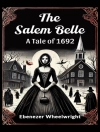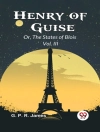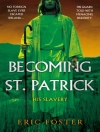In ‘Burgo’s Romance, ‘ T. W. Speight crafts a captivating narrative that intertwines themes of love, sacrifice, and social dynamics within 19th-century England. The novel employs a rich, descriptive literary style that draws readers into the intricacies of its characters’ lives, effectively reflecting the societal norms and constraints of the time. Speight’s vivid portrayals of longing and conflict resonate through his deft character development, set against the backdrop of Victorian societal expectations, encapsulating the era’s romantic idealism while challenging its conventions. T. W. Speight, a notable figure in late Victorian literature, was profoundly influenced by his experiences with the complexities of human relationships and the societal changes of his time. His keen observations of class struggles and emotional conflicts enrich his storytelling, showcasing his understanding of the human condition. Speight’s background in journalism and early novels serve to elucidate his ability to weave intricate plots that captivate and provoke thought among readers. ‘Burgo’s Romance’ is a must-read for enthusiasts of classic literature, as it offers a nuanced exploration of love against the constraints of society. Readers will find themselves engrossed in Speight’s eloquent prose and the moral dilemmas faced by his characters, making this novel an enriching addition to any literary collection.
Sobre el autor
T. W. Speight, known primarily for his contributions to the genre of Victorian-era detective and mystery fiction, was an English novelist whose life and work are shrouded in considerable obscurity. Little is known for certain about his personal background or his broader literary oeuvre, which, despite its lack of present-day renown, captured the imaginations of 19th-century readers. His novel ‘Burgo’s Romance’ exemplifies Speight’s narrative approach, weaving elements of romance into the more thrilling aspects of mystery and suspense, a hallmark of his literary style. Moreover, Speight’s works are characterized by intricate plots, often featuring misdirection and the exploration of human nature under duress, capturing a sense of the societal anxieties prevalent at the time. Sadly, T. W. Speight’s contributions have largely faded from the collective literary consciousness, and much of his writing is out of print or exists in the shadows of the more prominent authors from the period. Nonetheless, for those interested in the Victorian detective story and its development, Speight’s novels offer a window into the genre’s evolution and the tastes of a bygone readership.












